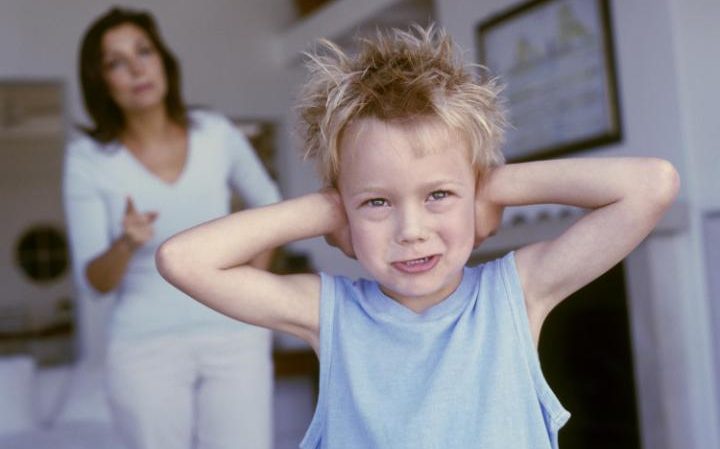The claims about the harms of smacking need correction
 Bob McCoskrie – National Director, Family First NZ
Bob McCoskrie – National Director, Family First NZ
Kyle MacDonald “Here’s what’s really wrong with smacking kids” argues that there isn’t a single study that shows smacking improves childhood outcomes.
MacDonald’s claim needs some reasonable correction.
In many cases, parental guidance and correction will be non-physical. Time out, withdrawal of privileges, a telling-off, grounding – they can often work. However, sometimes a parent may reasonably decide that a smack is required to correct or prevent defiant or unacceptable behaviour. In these cases, section 59 of the Crimes Act (the anti-smacking law) says that parents are committing the serious crime of assault. As a result, the law has a chilling effect and can prevent parents from parenting effectively. Opinion polls consistently reveal strong public agreement that parents oppose this law.
And the research actually backs their case.
A 2007 Otago University study found that children who were smacked in a reasonable way had similar or slightly better outcomes in terms of aggression, substance abuse, adult convictions and school achievement than those who were not smacked at all. A large American study published in the peer-reviewed journal Psychological Reports last year found similar results.
Further, a study by the Christchurch School of Medicine found there was no difference in outcomes between no smacking and moderate physical punishment. They said; “It is misleading to imply that occasional or mild physical punishment has long term adverse consequences”.
A recent study of teenagers by a team from the Albert Einstein College of Medicine in New York, published in the journal Parenting: Science and Practice, found the effects of discipline – such as verbal threats or smacking – are offset by the child’s feeling of being loved.
It also said anti-smacking policies are problematic because they contradict many adults’ own childhood experiences with discipline and their long-term outcomes, and that this study demonstrated one condition – maternal warmth – under which discipline does not result in negative outcomes for the child in later life.
This study joins what the researchers refer to as ‘emerging theoretical and empirical evidence’ which challenges the academic and political view that smacking is child abuse and should be banned.
Studies cited by MacDonald and other opponents of smacking do not adequately distinguish the effects of smacking as practiced by non-abusive parents from the impact of severe physical punishment and abuse. It simply assumes that the outcomes of a light smack will be the same as a child who is physically abused.
But here’s the significant aspect – one that no supporter of smacking bans will go near, including MacDonald.
What about other forms of correction of children. Are they also problematic?
A 2013 peer-reviewed study from Oklahoma State University referred to three recent studies of 12 disciplinary tactics that parents could use instead of smacking. They found that “no disciplinary tactic was ever associated with reduced child behaviour problems, and 7 of the 12 tactics predicted significantly worse behaviour problems in at least one analysis.”
Other studies have shown that expressing disappointment and yelling or scolding were associated with as many significantly adverse outcomes as smacking, and time-out and shaming were also significantly associated with internalising problems. Psychotherapy for children and using Ritalin for ADHD appear just as harmful as smacking when using the best research methods used in anti-smacking studies.
So every form of correction can be problematic at times. Why is that?
The study by Oklahoma State University argues that selection bias taints the conclusions of most studies which criticise smacking. They say “Parents are less likely to use corrective actions when children do well in school… do not smell of tobacco smoke, are not at risk for precocious sex, demonstrate trustworthiness with non-deviant peers, are cooperative, and respond well to reasoning. Quite simply, parents do not need to use corrective actions when there are no problems to correct.”
The researchers say that this bias prevents research from discriminating between ‘more effective’ versus ‘less effective’ ways to use any corrective disciplinary action – smacking or alternatives that parents could use instead. They conclude that studies which criticise smacking all failed to investigate alternative disciplinary tactics that parents could use in similar disciplinary situations:
They said “Instead, these studies implicitly compared high spanking (smacking) frequency versus doing nothing… Doing nothing, however, is not an acceptable option when parents are dealing with defiance or dangerous behaviour… Before spanking can be discounted as a viable disciplinary tactic, it needs to be compared with alternatives such as time-out which parents could use in similar disciplinary situations.”
Finally, authors of a study of what has happened in Sweden – the first country to ban smacking in 1979 – suggest that, despite the best of intentions, the prohibition of all forms of physical correction may inadvertently undermine appropriate parental discipline, with the result that a small, but increasing percentage of boys may grow up with a dangerous combination of disrespect for their mothers and a lack of self-control.
They said “Without appropriate parental discipline, such boys learn to get whatever they want when they want it regardless of their mothers’ disapproval.”
Surveys show that kiwi parents use occasional smacking because it works and it’s appropriate. Parents deserve our respect and our support to make the best decisions for their children.
It is time we targeted rotten parents who are abusing their children, rather than good parents who choose to use a smack as part of their parenting tool box when raising law-abiding and responsible citizens.






